Today’s world is technology-driven and we would like to teach each other about our schools´ activities related to basics of robotics.
Teaching robotics gives students the opportunity to learn STEM subjects while learning how science, engineering, maths, and technology interact. It increases their creativity, promotes inclusivity and prepares pupils for future.
In December 2020 Slovak students prepared introductory videos in English on how to get started with Arduino UNO. Then they will programme different Arduino sets and do STEM experiments with them.
You can find our first nine videos = tutorials in this presentation:
https://www.canva.com/design/DAESjHp4XNQ/hyXTVvI2UBIaDS8d8hjv-g/view?utm_content=DAESjHp4XNQ&utm_campaign=designshare&utm_medium=link&utm_source=publishsharelink
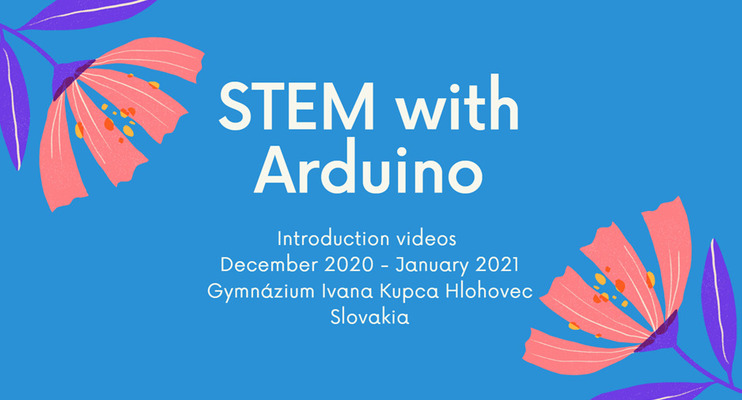
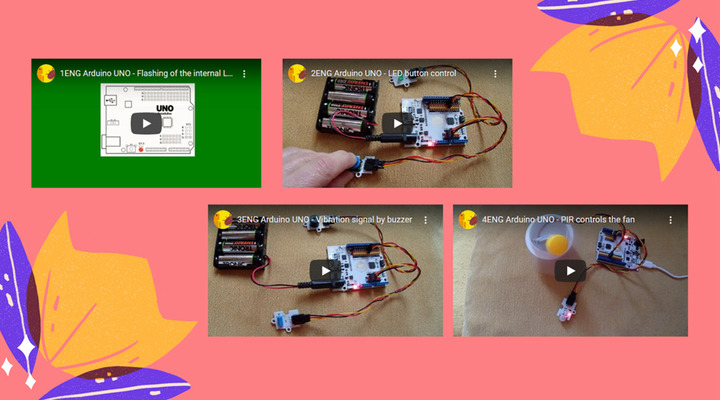
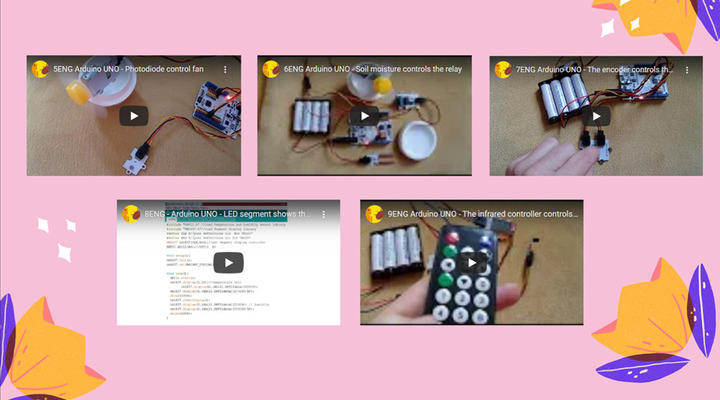
In Polish school, we don't use Arduino, but I was lucky to participate (as a teacher) in international Arduino workshops, which were held in August 2020 at the University of Adam Mickiewicz in Poznań. I learnt how to use Arduino in meaningful learning context.
(M.M.)
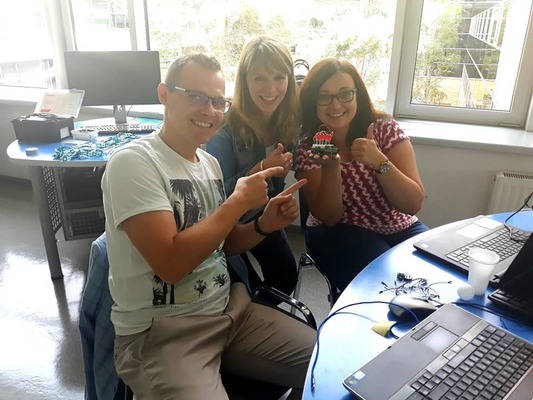
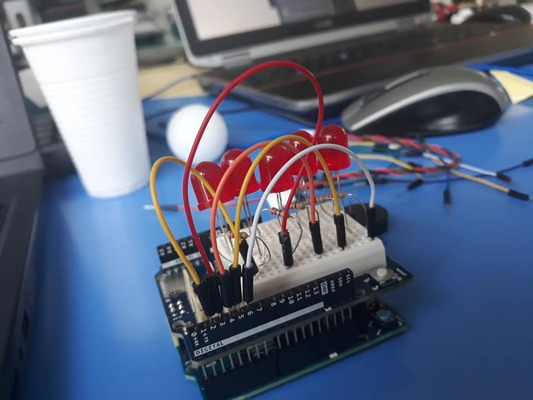
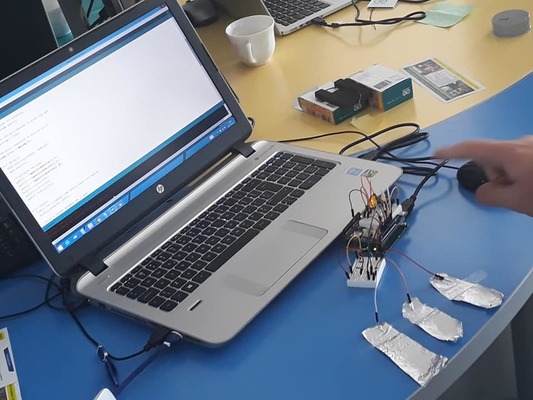
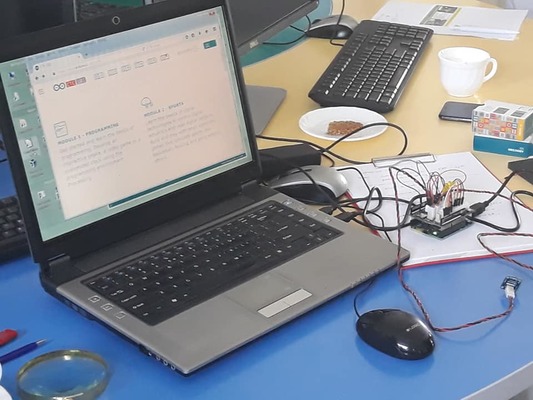
In our school, we use two types of robots: Ozobot and Dash.
The first one - Ozobot - is a Polish robot, which is very small and easy to use. It recognizes lines drawn in different colours. There is also a set of colour codes, which he treats like commands. Here you can see the list of codes he recognizes:
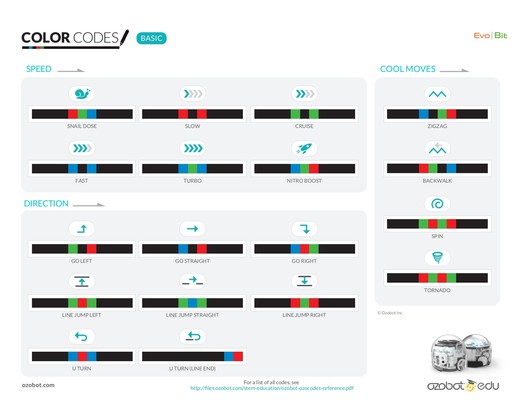
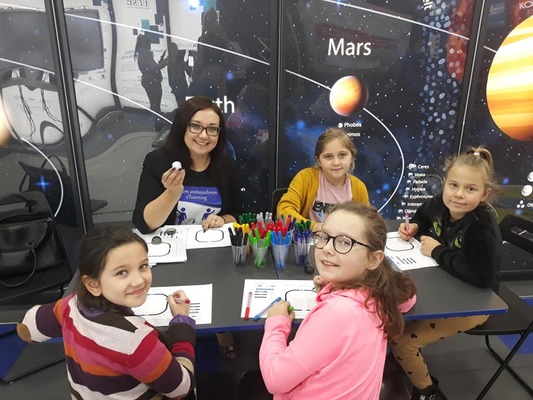
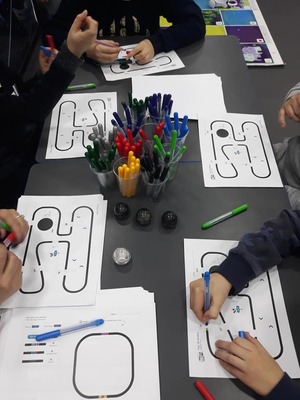
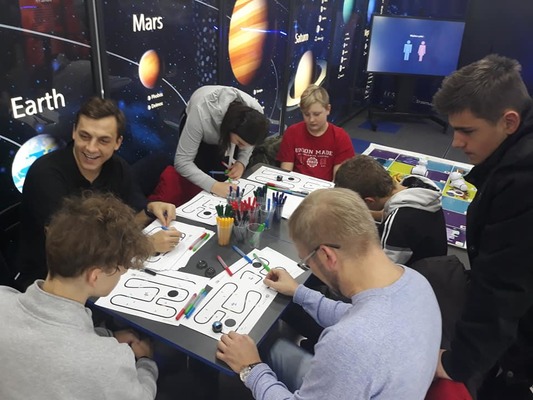
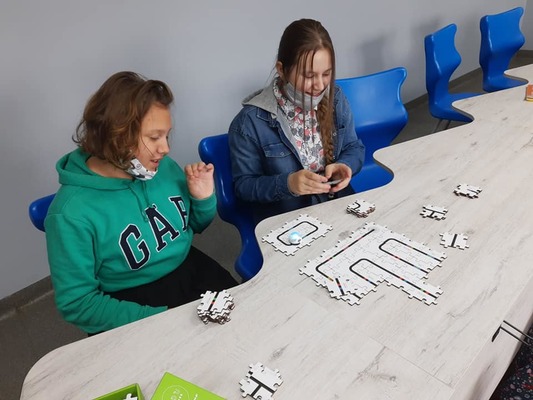
As you can see, working with Ozobot is a good fun for younger and older students :)
What can we use Ozobot for?
- giving directions
- planning and developing logical thinking
- making an educational game
- practicing comprehension of foreign language
... and many more!
When it's about Dash, we started working with it in October 2020. Dash is a blue robot which is controlled with an easy-to-use app. Younger students can simply play with it: tell it to imitate animals sounds or treat as a remote-controlled car. Older kids and teenagers can code his way around the room or even tell him to perform a set of coded activities. Everything depends on our imagination!
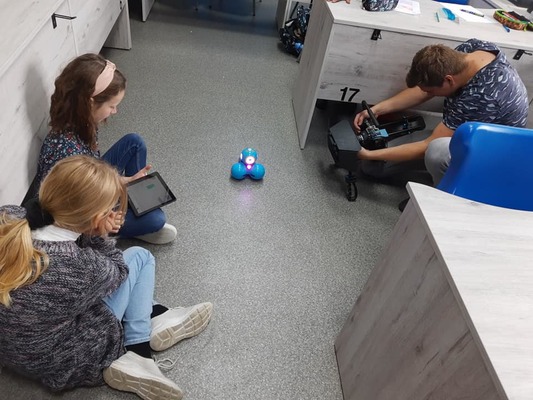
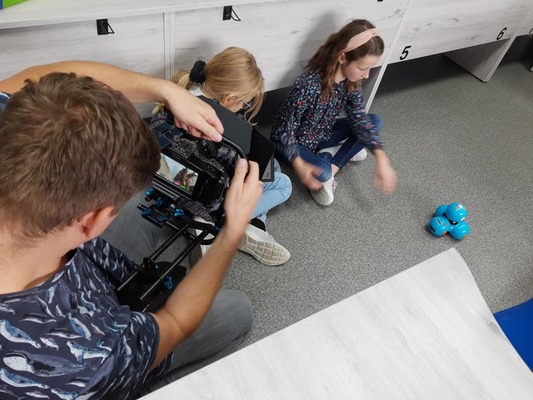
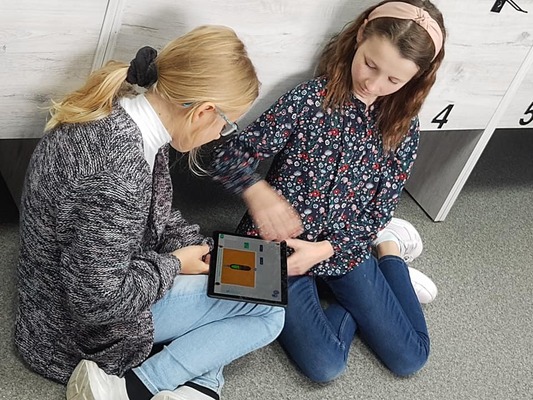
Seyide EROĞLU/ TURKEY
Within the scope of "CODEWEEK 2021" in our school; Abdullah Gül University, Engineering Faculty, Head of Computer Engineering Department Prof.Dr. by VEHBİ CAĞI GÜNGÖR; A webinar called "DIGITAL TECHNOLOGIES: THE INTERNET OF THINGS AND ARTIFICIAL INTELLIGENCE" was held.
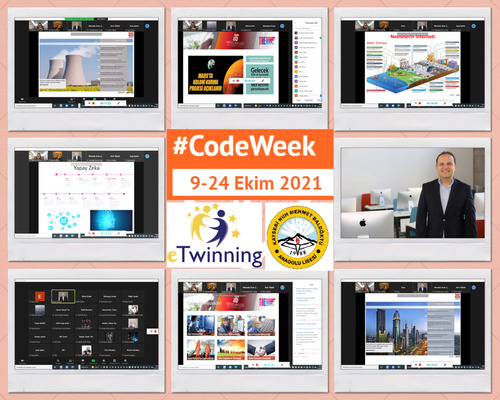
CODE WEEK in Lithuania
During the code week, Lithuanian students have visited Ignalina‘s library where they had really an interesting workshop together with the robotic AG instructor.
They have watched a short introduction video about the Lego MINDSTORMS EV3 kit and its possibilities. This kit contains everything you need to build and program a robot. With LEGO MINDSTORMS EV3 Robot Builder, you will use innovative and intelligent technologies to create and program your robot to help you better understand how technology works in the real world. This will help you better understand and interpret two-dimensional drawings and create three-dimensional models from them (create, test, and refine; gain practical experience using mathematical concepts such as calculating and measuring distance travelled, time, and speed).
Using these Lego Mindstorms EV3 Brick the students were learning how to design, program, and test robotics. The kit includes the EV3 control unit, a small but powerful computer that allows you to control the motor and sensors. It also has a BT and Wifi connection for programming and recording data. Instructions on how to construct additional models using this kit are included in the software. The kit is in a sturdy box and its parts are sorted for easier use and storage. it was a really good time spent together.
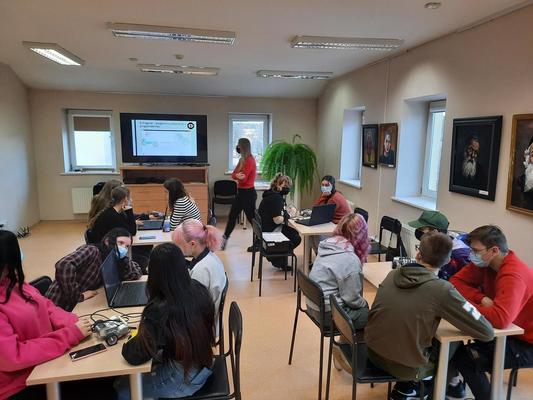
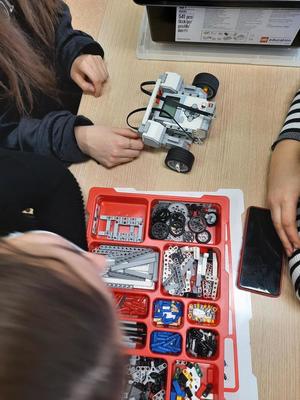
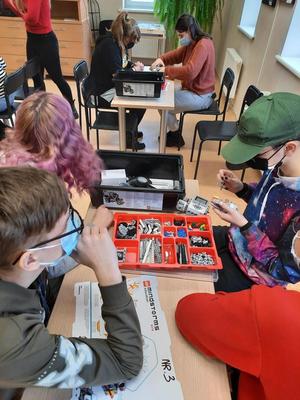
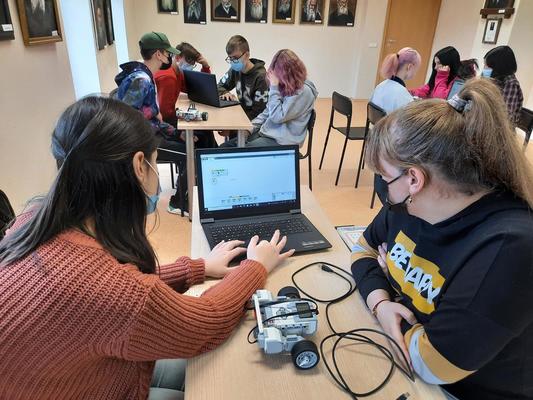
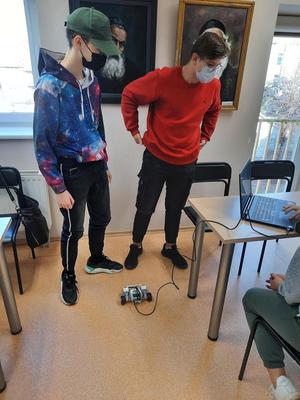
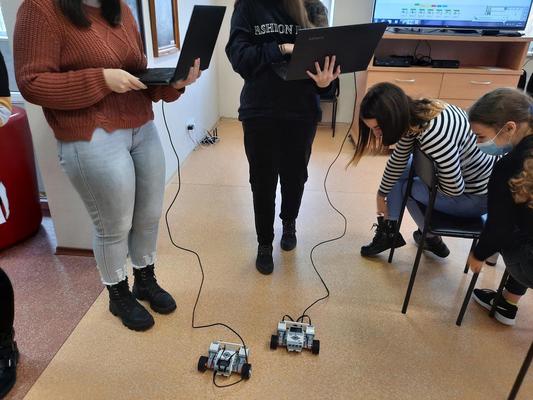
Scratch is the world’s largest coding community for children and a coding language with a simple visual interface that allows young people to create digital stories, games, and animations. Students are learning with Scratch at all levels (from elementary school to college) and across disciplines (such as math, computer science, language arts, social studies).
Our primary students started this year to use this way of coding. “We like Scratch because we’re creating interesting games and projects that are fun to play, watch, and download“ – say our younger students.
Look at their first products ;)
https://scratch.mit.edu/projects/612833809
https://scratch.mit.edu/projects/586077960
https://scratch.mit.edu/projects/616658001